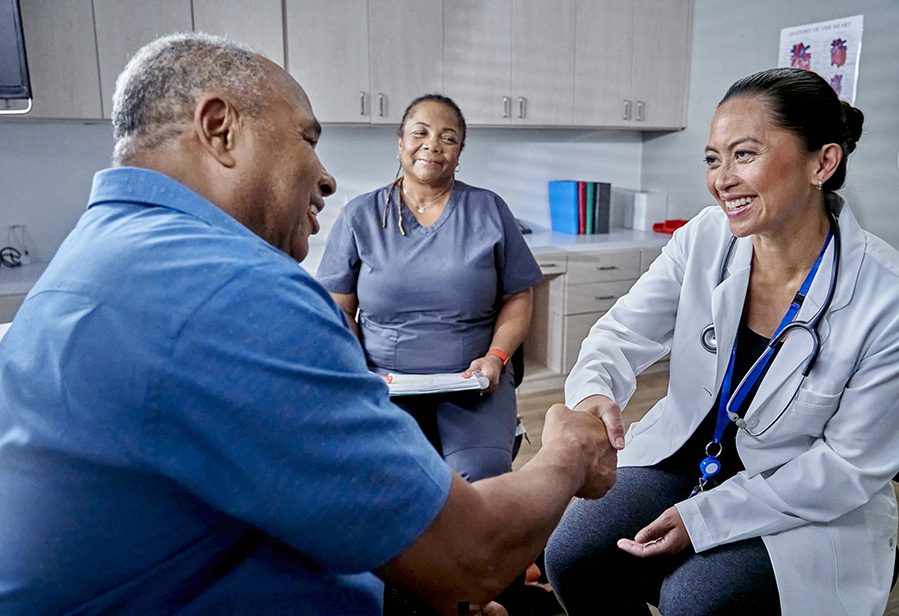It’s normal to experience some periods of forgetfulness. Slips in memory can have common—and treatable—causes. Some medications, depression, stress, and anxiety can all contribute to memory loss. Your doctor can help you to find what may underlie memory issues and offer tips on how to improve memory.

For many people, adding some memory exercises to their daily routine can make things better. Some leisure activities you already enjoy can improve memory, a fact that’s backed up by scientific studies. Adding in some games, mindfulness, puzzles, and physical activity can help keep your mind sharp.
What Are Some Activities and Exercises to Maintain and Strengthen Memory?
People engage in activities and hobbies for relaxation and enjoyment—but many can also improve memory. Here are a few examples of ways you can increase your brain power by doing something you already enjoy.
Break out the jigsaw puzzle
Jigsaw puzzles are a common activity enjoyed by folks of all ages—many turn the completed puzzles into works of art they display on walls. Whether or not you’re interested in the final image, research shows jigsaw puzzles can help strengthen your brain. The results of a clinical trial published in 2018 found regular engagement with a jigsaw puzzle engaged visuospatial cognition, a measure that includes working memory and episodic memory.
Play a card game
Card playing, whether it’s solitaire or a friendly game of poker or bridge, is one activity that can help your mind stay healthy. A 2016 study of people at risk for Alzheimer’s disease found that different games—specifically cards, checkers, puzzles, and crosswords—contributed to better brain function. In a 2017 study, people over the age of 70 who played games, engaged in craft activities, used computers, or participated in social activities had less risk of mild cognitive impairment.
Work on number puzzles
If you like Sudoku, there’s good news. Your puzzle of choice can greatly improve memory and other indicators of brain health. A 2019 study of adults aged 50 to 93 found a link between how often someone worked on a number puzzle and strong cognitive function. Regular engagement with number puzzles improved measures such as focused and sustained attention, executive function, working memory, and episodic memory.
Start dancing—or take a yoga class
Physical activity has a number of benefits for the body. These activities also help the mind. Exercise helps with motor coordination, brain function, and memory. You don’t have to run a marathon to witness the effects. A 2018 study found that light exercise, such as a yoga or tai chi session, increases activity in the hippocampus. That’s the part of the brain that helps with the recall of facts and events. In the study, light exercise also improved connections between the hippocampus and the cerebral cortex, which plays a role in memory processing.
Develop a new skill
It’s never too late to start something new, and developing a new skill can improve your overall memory. A 2014 study followed a group of adults over the age of 60 who learned quilting, digital photography, or both. After three months, those who learned these new skills had better episodic memory than study participants who engaged in social activities, or less demanding intellectual activities, alone.
Take a breath and meditate
There’s often a sense of relaxation and calm that comes with meditation. Research shows it can also help your memory. A 2021 study found that when college students engaged in one of two types of meditation, many experienced improved short-term memory and cognitive function. You don’t have to be of college age to benefit from this practice or another form of mindfulness. The National Institutes of Health touts the many upsides of meditation, including studies that have found meditation can slow or even reverse the effects of aging on the brain.
Learn a second language
A 2012 study of bilingual older adults found they had better episodic memory than their counterparts who spoke only one language. The longer someone had been bilingual, the better their episodic memory. The researchers concluded that the practice of balancing two languages improves executive brain functioning and memory. So this is a great time to start learning that second language you’ve always wanted to speak.
All of these options can help you improve memory, but even more so, they can contribute to overall well-being. For many people, memory exercises don’t have to mean a rigorous change in routine—it can simply mean doing more of what you already love.
Why Choose a Provider at Intermountain Health?
Intermountain Health is dedicated to patient-focused, community care. Our myGeneration Senior Clinics is exclusively for people on Medicare, offering longer doctor’s visits and in-depth consultations so your concerns are heard. As a team committed to preventive as well as acute care, we are proud that our patients experience 40% fewer hospital admissions than the national average*.
At Intermountain Health, our network of primary care providers and specialists ensure you get the care you need. To book an appointment, use our find a provider tool today.
*This article is for informational purposes only and is not intended to be a substitute for medical advice or diagnosis from a physician or qualified healthcare professional.





